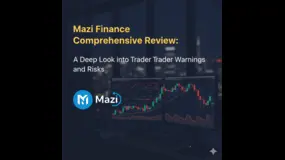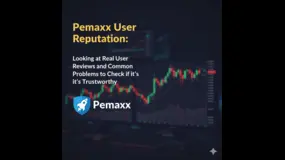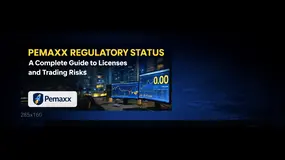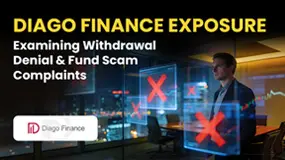Abstract:Protect your investments from unregulated forex brokers with these tips. Learn about red flags, scams, and how the WikiFX app ensures safe trading experiences worldwide.
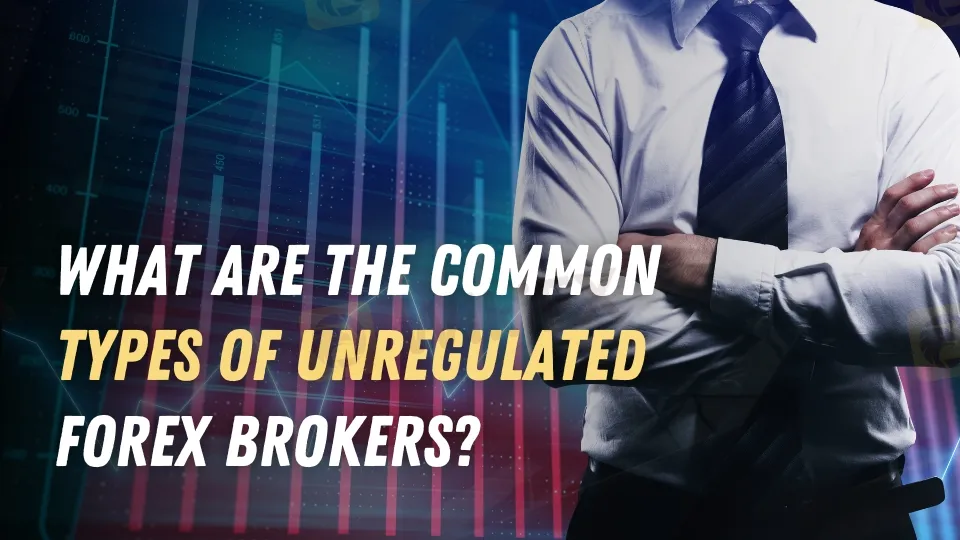
The financial sector provides several prospects for wealth generation, but it is also a breeding ground for unregulated brokers who exploit regulatory weaknesses. These brokers, who operate without oversight, frequently utilize fraudulent tactics to entice naive traders, particularly beginners. This article investigates how unregulated brokers work, the risks they bring, and the precautions investors should take to protect their money.
Furthermore, technologies such as the WikiFX app, which is meant to give accurate broker information, can play an important part in ensuring safe trading.
How Unregulated Brokers Operate in High-Risk Markets
Unregulated brokers thrive in high-risk sectors where regulatory control is limited or non-existent. These marketplaces are frequently located in poor countries or offshore jurisdictions with looser financial regulations. Such brokers avoid the regulatory constraints of authorized trading platforms by offering high-risk items such as excessive leverage, exotic financial instruments, and complex derivatives. Their primary goal is to take advantage of market participants who don't have access to trustworthy financial systems or dependable information.
Unregulated brokers entice investors to grow their portfolios by seeming credible and offering spectacular returns. This lack of openness, paired with little to no accountability, creates an ideal environment for financial abuse. To address this, platforms such as WikiFX allow traders to check a broker's regulatory status and read user feedback, resulting in better-informed decision-making.
Related Article:
Red Flags to Spot Shady, Unregulated Broker Tactics
Unregulated brokers must be detected by paying close attention to warning indications. A few of the most common red flags are:
- Unrealistic Promises: Pledges of high profits with minimal effort or risk.
- No Verified Regulation: Claims of regulation often lack substantiation on official authority websites.
- Persistent High-Pressure Sales Tactics: Frequent calls or messages pushing for deposits.
- Opaque Policies: Vague or hidden terms regarding withdrawals, fees, and conditions.
Investors should exercise caution and use verification tools such as WikiFX, which collects regulatory data from foreign agencies, allowing traders to rapidly verify a broker's qualifications and legality.

Why Do Unregulated Brokers Target Novice Retail Traders
Novice traders are great targets for unregulated brokers due to their lack of understanding of trading complexities. These brokers frequently use aggressive marketing strategies, such as advertising simpler trading platforms, automated tools, or guaranteed returns. They appeal to newbies by portraying trading as a quick and simple means to reach financial independence.
Unfortunately, many inexperienced traders fall into this trap, enticed by promises of bonuses or unique deals. However, these offers frequently include hidden clauses that lock traders into unprofitable cycles or restrict withdrawals. Retail traders benefit from tools like WikiFX, which provides thorough information about brokers such as ratings, complaints, and user comments. This transparency allows traders to make informed decisions and avoid unscrupulous sites.
Understanding the Dangers of Offshore Broker Accounts
Offshore broker accounts are characteristic of unregulated trading platforms. These brokers establish businesses in countries notorious for lax financial rules, allowing them to avoid inspection. While they may offer bonuses like tax breaks or high leverage, these advantages come with serious hazards, including:
- Limited Legal Remedies: In the event of fraud, investors have little or no options for recovering lost cash.
- Non-Segregated Funds: Client funds are frequently pooled and used at the broker's discretion, raising the risk of loss if the broker fails.
- Currency and Transfer Risks: Transactions involving several currencies or offshore accounts sometimes result in excessive costs and delays.
Traders can use WikiFX to assess the legitimacy of offshore brokers by analyzing their operational processes, locations, and compliance with international norms.
Key Characteristics of High-Risk Trading Brokers Today
High-risk trading brokers frequently use specific strategies to entice thrill-seeking or inexperienced traders. These include the following:
- Excessive Leverage: Offering leverage levels far beyond those allowed by regulated brokers.
- Unregulated Products: Promoting volatile instruments like binary options, CFDs, and cryptocurrencies without proper authorization.
- Aggressive Marketing: Utilizing social media, email campaigns, and influencer endorsements to create a sense of urgency.
These attributes make such brokers enticing, but they are exceedingly dangerous, especially to traders who are inexperienced with the hazards involved. A thorough background investigation using WikiFX can reveal vital information regarding a broker's activities, assisting traders in avoiding these dangers.

Protect Your Investments from Unregulated Broker Fraud
Protecting your investments is a multistep process that involves vigilance, education, and the appropriate instruments. Here's how you can protect your finances:
- Verify Regulation: Always confirm a brokers regulatory status using official websites or tools like WikiFX, which consolidates regulatory information from around the globe.
- Research Reviews: Check for genuine user feedback to identify patterns of misconduct or fraud.
- Avoid High-Risk Offers: Be cautious of bonuses or promotions that seem too good to be true, as they often come with hidden conditions.
- Secure Payment Methods: Use payment methods that allow for traceability and chargebacks in case of disputes.
By combining these procedures with the knowledge provided by WikiFX, investors can considerably decrease their exposure to fraudulent schemes.
Common Scams Operated by Unregulated Brokers Globally
Unregulated brokers run a wide range of scams that exploit traders all around the world. Some of the most common are as follows:
- Pump-and-Dump Schemes: Manipulating low-quality assets to inflate their value before selling at a profit.
- Fake Investment Plans: Offering bogus trading accounts or managed services that promise consistent returns but have no real market activity.
- Withdrawal Restrictions: Refusing or delaying withdrawals through convoluted policies and excessive fees.
- Unauthorized Trades: Placing trades on behalf of clients without their consent, often resulting in significant losses.
Such schemes thrive because of a lack of oversight and investor education. Traders can use WikiFX to find out about frauds and avoid untrustworthy brokers.
Related Article:
https://www.wikifx.com/en/best/unregulated-forex-brokers.html
Final Thought
The financial market can be profitable, but the prevalence of unlicensed brokers creates substantial hazards. Their deceitful techniques frequently cause massive financial losses for unsuspecting traders. Traders, on the other hand, can level the playing field by exercising caution, educating themselves, and using tools like the WikiFX app. WikiFX offers real-time data, broker evaluations, and regulatory insights to assist investors make informed decisions. Traders may protect their capital and navigate the market with confidence by prioritizing research and using trusted tools.








